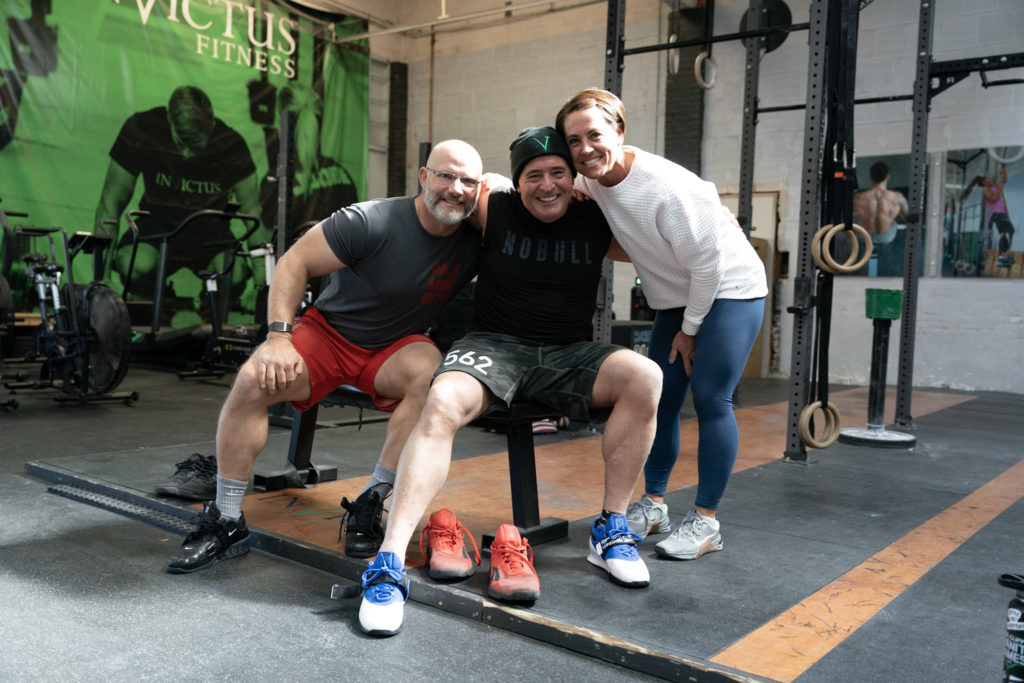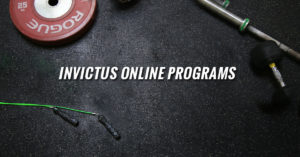
Is Training Leaving You Sore or Beat Up?
Written Kirsten Ahrendt
Let’s set the record straight. Your training should not leave you perpetually sore, fatigued, or beat up. This is fact.Truth. Defendable by errrrbody & errrrry study in strength and performance universities across the galaxy.
Being perpetually sore or feeling “beat up” eventually leads to a decrease in performance and is usually related to one of these four factors:
#1 – Training Volume
Specifically overtraining
#2 – Recovery
Specifically under-recovering via sleep/ mobility / nutrition / restorative bodywork, restorative movement
#3 – Programming
Is your programming within your scope of ability? Is your programming well-balanced? Does your programming align both with what you want and what you need?
#4 – Mindset & Intention
What’s your mindset when you train? Do you consider/understand the intended stimulus behind each of your programmed sessions and are you achieving it?
At points in a training cycle, you will and should feel sore, it will correlate with a peak in your training load, volume, or intensity. But it cannot and should not be sustained perpetually. For optimal growth and improvement, we must overload and then deload. If you find yourself perpetually sore, are seeing a decrease in desire to train, decreased energy while training, or inability to achieve percentages in lifts or conditioning, discuss with your coach your training volume, variety, intensity, and recovery! They will be able to spot issues and a plan of attack for you.
Training Volume
How many days should I train?
The answer is unique to each human, but the truth is…most people will see improvements in health and performance with 4-5 days per week. If you’re a novice, 3 days per week will create change.
Our coaches have many examples of athlete performance and energy levels increasing when a member actually decreases their training volume (and even better, when they increase their recovery protocols). Coach Fritz calls this “cutting out junk volume”. More is not always better when it comes to training, so if you’re feeling perpetually sore, you may want to consider if you’re overtraining.
How much should I train?
When deciding how much you should train, you and your coach will consider:
Biological Age
(our bodies respond differently as we age)
Training Age
(how many years of training experience you have, without major gaps. For instance a 40 year old former CF games athlete may be able to sustain a level of training that a 28-year old amateur may not because of the years of training and fitness they have developed. Biological age is not the whole story.)
Training Goals
Timeline
(to Achieve goals)
Recovery
As a society, we glorify hard work, and in doing so, often shortchange the value of recovery and down-time. There is no yin without yang, ya know? If you are training 5-6 days each week without balancing “work-outs” with “work-in”, you will eventually tip the scale and feel beat up because your “inputs” (recovery) are less than your “outputs” (training). Recovery isn’t just passive “off days” of lounging on the couch.
Active Recovery
Some sources of recovery are active and include:
Sleep
Aim for 7-8 hours minimum. A single night of decreased sleep can lower testosterone levels, Central Nervous System readiness, reaction time, even metabolism.
Mobility
We can only get strong in the positions and range of motion we have access to. Passive stretching, CARs, and loaded eccentrics are all mobility tools to strengthen and increase your range of motion. If you have 6+ hours of training/week, you should have at least 1-2 hours/week of mobility work (sounds like a lot, right?! But it’s only 10-20:00 for each hour of training. Small in comparison.)
Nutrition
Poor nutrition or inadequate calorie intake will tank your energy reserves, impede your strength gains, and limit your recovery to workout the following day. Diets high in processed foods contribute to a high level of inflammation in your body which correlates to soreness. Many Invictus nutrition clients find out that they are eating TOO LITTLE given how much they’re training. Which is crazy because our society is obsessed with telling everyone they need to be on a diet. #dumbSocietalConstructNo1
Restorative Movement & Bodywork
Restorative movement is about blood flow, not exercise. Walks in nature, a yoga practice, meditation, massage, ice bath, heat exposure, 20-30:00 nasal breathing Zone 2 low-impact bike, all helps your lymphatic system flush out toxins and built up lactate.
Programming
Regardless of goal, the old adage “no pain, no gain” should go leap into a giant dumpster-fire. Or at least be amended to “All pain, no gain”. When it comes to programming, some of your sessions should feel sustainable, some should feel difficult, and a tiny select few should feel like you set your soul on fire. Your goals, your lifestyle, and current ability dictate the ratio. Many of us hedonistic psychos that like to workout have at some point in our lives spent too much time in the “soul on fire” zone (every coach raises their hand here), and our performance eventually tanks even though we feel like we’re training with maximal effort. This is a lesson often learned the hard way. Below are a few examples of how to orient your programming depending on some general intentions/goals:
Training for Overall Health and Wellness
Your best bet is to attend a variety of Invictus classes – Strength, Motor, Performance, Fitness classes. Depending on goals and current health, you may bias one class type more than another. For example, someone with body composition goals should include a higher volume of strength training (more than the 20:00 that can be allocated in the Performance track), since the increased muscle mass will help to burn greater calories.
Training to Compete in the Sport of CrossFit
You may think “more Performance classes and all Comp class! Because to get better at CrossFit, I need to CrossFit!” Yes. And no. Owner CJ likes to think of CrossFit as the basketball game. In order to be a good player, you need to have practiced dribbling, shooting, and free-throws. The best players don’t just scrimmage, they have sessions to work on their skills. So you should have a balance of CF classes, strength classes, skill sessions, and motor class depending on your strengths and weaknesses.
Training for a Unique/Specific Goal Outside of the Gym
One of our coaches can create a roadmap of class types and frequencies that will build the applicable strength and skills needed to reach your goal. We have folks training for Special Ops, decathlons, mountaineering, and ultra marathons. Many incorporate group classes and individualized semi-private programming depending on their needs and timeline.
How to Make Sure Your Workouts Don’t Leave You Sore
Movement Overlap
If you jump from a muscle class to P&F to Motor or even Oly, you may have days where you see the same movement repeated. Let your coach know so they can use their MAD COACHING SKILLZ to keep the stimulus appropriate for you and avoid over-training. This is what Invictus coaches excel at. Customizing a class is our way to provide you an individualized experience in a group setting.
“I can, but should I?”
Just because you can do something, doesn’t mean you should. If you have kipping pull-ups, but not too many – treat them as the skill they are and work them in a non-fatigued state rather than in large volume during the conditioning WOD, your shoulders will thank you (now and when you’re 50). We have a saying at Invictus, “the white board is not law.” You are free to interpret the whiteboard as a recipe that can be customized.
A Note on Fun
Nearly all our members come to Invictus for some element of fun and community! Every once in a while, it’s okay to throw down when you’re sore because the vibe in class is just LIT. Other times you gotta listen to your body, and give it what it needs (not what your ego may want). Invictus is like a buffet – we give you lots of options and our chefs (aka coaches) will cook you up a custom recipe! But always choosing what looks “fun” is like eating dessert for every meal. You gotta eat your vegetables.
Mindset & Intention
What’s your mindset and relationship to training? Do you value it or view it as a chore to be completed? How we mentally approach training can dictate what we get out of training. It is vital that you begin to understand the intended stimulus of the program that day and how you will personally achieve it with customizations. If you don’t, you may end up with an entirely different effect from training than what was programmed. Invictus coaches will help you clarify ways that you can achieve both the stimulus of the workout and what makes you happy that day! (All in day’s work.)
Summary
The underlying question here is actually…“How do I get the most out of my training?”
If you’re “getting the most” you will have the ability to continue to train week after week, month after month, year after year. Reflect on these 4 factors – training volume, recovery, programming, mindset, and see where you can adjust!
Uncertain about how to get the most out of your training? Let’s chat!
